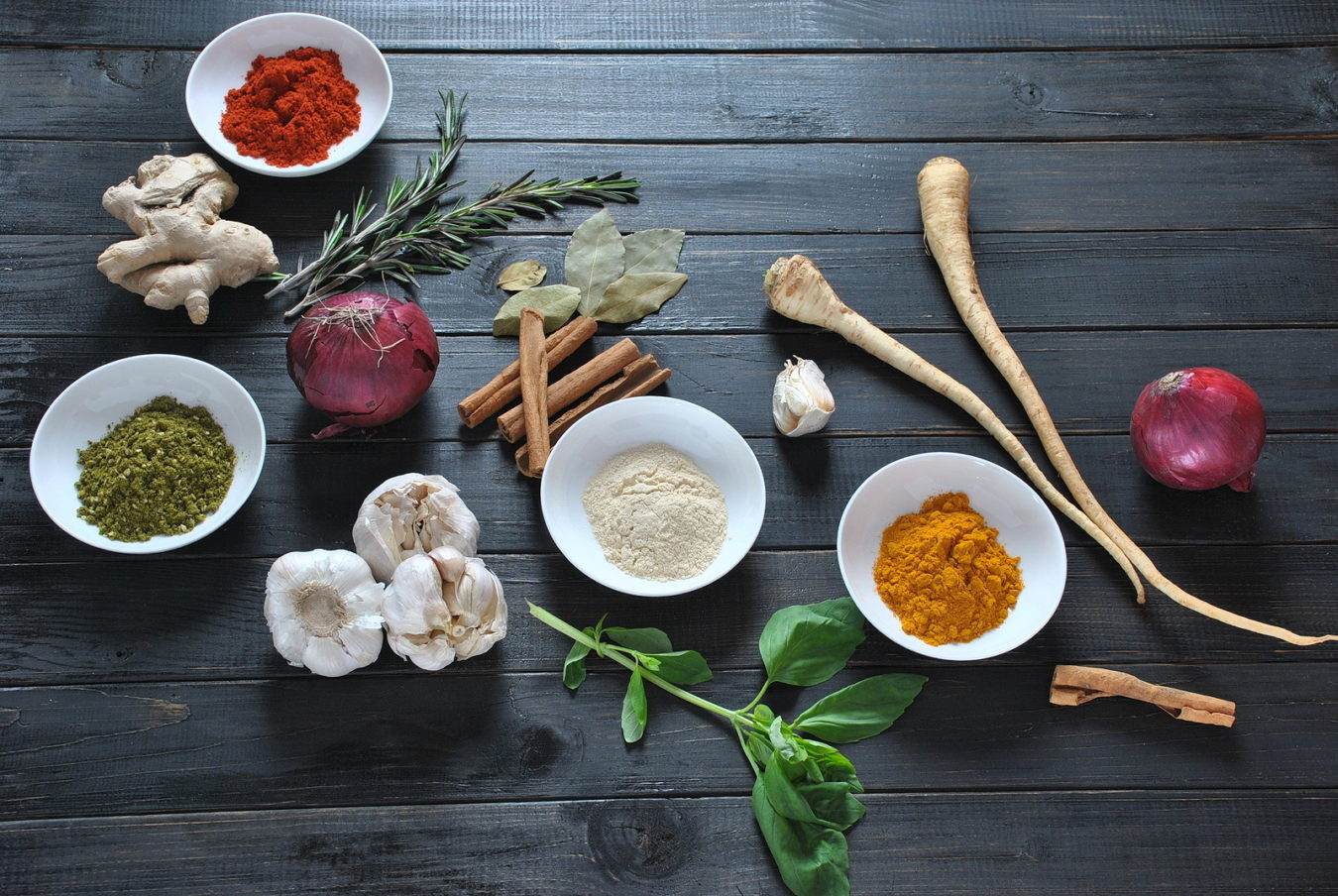A healthy diet is the first step toward a healthier heart. Eating lots of vegetables, fruits, beans, whole grains, healthy fats like olive oil, and lean protein like fish and chicken, can’t be beat for preventing heart attacks and strokes.
But how you prepare these foods also makes a big difference. A variety of herbs have been shown to give your heart an additional health boost. Here are a few good picks:
Cinnamon
Cinnamon helps the heart in several ways. A 2013 review study of 10 previous studies found that a small daily dose of cinnamon decreased levels of total cholesterol, “bad” LDL cholesterol, and triglycerides, a harmful type of blood fat. It also lowered blood sugar, protecting against diabetes, which increases the risk for heart attacks and strokes.
To use it: Sprinkle on oatmeal, add to smoothies, or mix into meatless or turkey chili.
Cardamom
One study found that cardamom, an intense spice often found in Indian dishes, may lower blood pressure. Research also shows it helps lower the risk of blood clots.
To use it: Find this herb ground or in pod form on the spice aisle. You can mix the ground seed into any Asian or Mexican dish. Or eat the whole pods as a snack. First toast them in a skillet over medium heat until fragrant, then toss them with heart-healthy olive oil.
Garlic
If you’re committed to heart health, you can’t go wrong with garlic. In a 2016 article that reviewed 20 prior studies, garlic was shown to significantly lower blood pressure. And another review study involving 2300 people showed it lowered total and LDL cholesterol by as much as 10% in those who had high cholesterol levels to start with.
To use it: Add to soups, stews, and casseroles. Sauté in olive oil with vegetables like spinach or kale. You can also take a garlic supplement.
Ginger
Eating this spicy root may reduce your risk for high blood pressure, research shows. People who ate more of it had the lowest risk. The study authors recommend 2-4 grams (or about ½ teaspoon to a teaspoon) a day to prevent this heart problem.
To use it: Chop it up and add raw to salads or toss into stir-fries and Asian dishes.
Curcumin
This substance is found in turmeric and gives the spice its rich, yellow color. It offers a bonanza of benefits for the heart, research shows: preventing dangerous blood clots, lowering cholesterol, and reducing inflammation that leads to heart attacks and strokes. It may also guard against heart failure, when the heart doesn’t pump blood as well as it should. And studies show that curcumin may be as effective as medication and exercise at improving the health of blood vessels.
To use it: Toss with roasted vegetables like cauliflower, onions, and carrots, or add to rice or soups. Some people take a turmeric supplement to get the benefit.
Berberine
A compound that comes from several plants, berberine is used to make a supplement. Research shows it helps the heart in several ways, including lowering LDL cholesterol and triglycerides and increasing HDL cholesterol. It also improves blood sugar.
To use it: Your best bet is a berberine supplement because the compound is hard to get from foods. Some people sprinkle the contents of a berberine capsule into a smoothie.
Unlike most prescription drugs, herbs and supplements are not controlled for quality and dosage may be different from batch to batch even when coming from the same manufacturer. Also, the risks and limitations are not described on the supplement’s labeling. Consider discussing these with your doctor.
In addition to using tasty herbs, try to prepare food in healthy ways. Instead of deep-frying chicken and fish, bake them in the oven, for instance. Use olive and canola oils for cooking. And give foods like tofu a try instead of eating meat every day. Together these measures will make eating heart-healthy a breeze!

